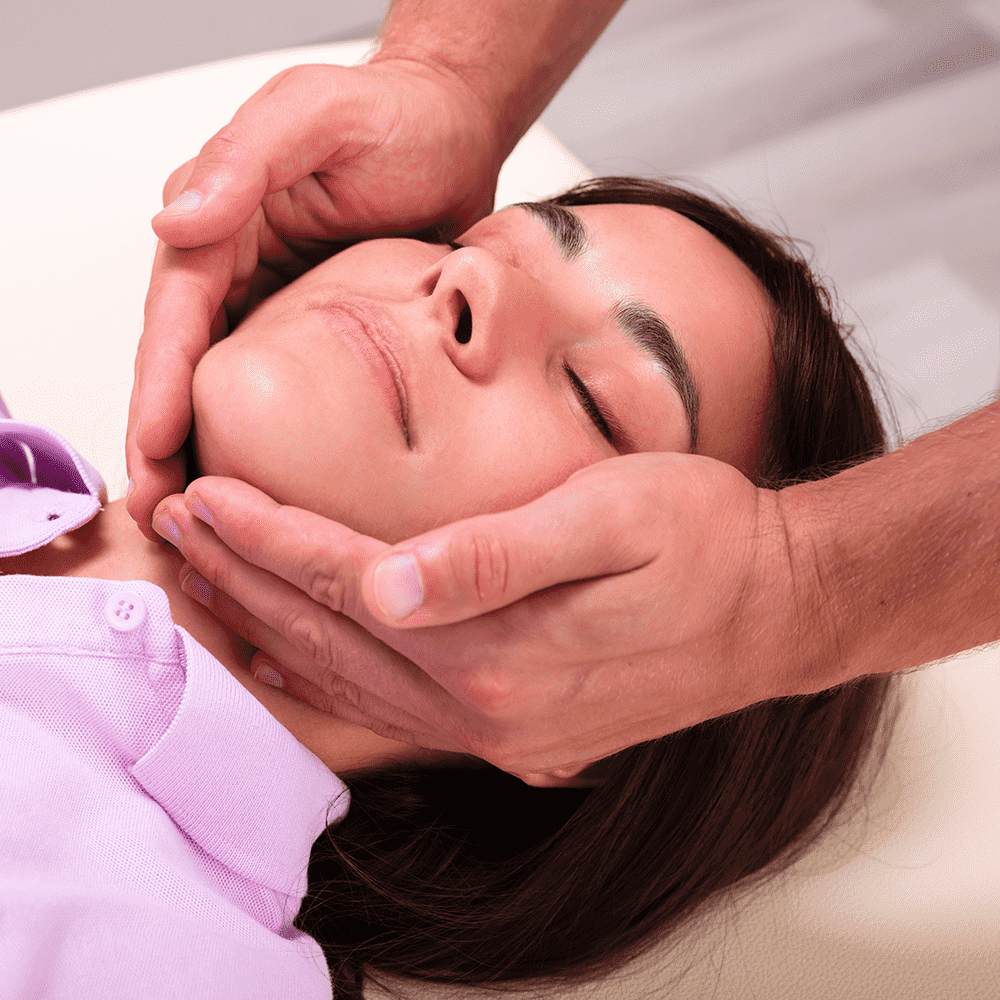
Correct bite is not only a matter of teeth positioning, but also the functioning of the entire masticatory apparatus – temporomandibular joints and muscles responsible for their movement, as well as the cervical spine.
Without taking these issues into account, the performance of orthodontic or prosthetic procedures may intensify the symptoms of masticatory system dysfunction, such as: blocking, jumping, crackles in the temporomandibular joint, limited range of mouth opening, pain in the joint area as well as head and neck pain, and the occurrence of tinnitus is also possible. or dizziness.
Effective therapy is possible thanks to wok in an interdisciplinary team of specialists: dentistry, speech therapy and physiotherapy. The first step is diagnosis and, if necessary, treatment of dysfunctions of the masticatory system. This is done by physiotherapists who specialize in working with this type of disorder.
Surprised? A physiotherapist deals with back pain, correction of posture defects or taking care of the fitness of our parents and grandparents who suffer from pain and stiffness in the joints. For proper movement in the temporomandibular joint and the work of the muscles that are involved in maintaining the correct position of the head and neck, chewing or swallowing.
The activity of these muscles is controlled by nerves passing through the openings between the vertebrae of the cervical spine, therefore careful diagnosis and therapy of this area is crucial in restoring normal functions.
Headaches and dizziness, tinnitus or feeling of clogging in the ears, even eye symptoms such as reduced visual aculity, larcimation or pain around the eyeball, may be the result of disorders in the masticatory system. Often, these ailments are not correctly diagnosed and treatment is ineffective.
Accurate diagnostics of the masticatory system allows you to plan an effective therapy, which includes:
Physiotherapy – to restore the proper functioning of the temporomandibular joints and masticatory muscles
Dentistry – in order to obtain correct dental contacts
Depending on the needs, other specialists are also involved in the treatment process.
When can you suspect a masticatory disorder?
When you have common symptoms such as:
– Crackling in the temporomandibular joint, or its jumping over
– Teeth grinding and trismus
– Pain when eating or yawning
– You have a malocclusion or missing teeth
– You have had a head or neck injury
– Sounds in the pond
– Crackling sounds in the temporomandibular joint
Have you ever wondered where this sound comes from?
Under normal conditions, with the opening and closing movements of the mouth the articular disc moves with the mandibular head. In the case of temporomandibular joint dysfunction, the disc is usually shifted anteriorly and the mandibular head is behind the disc. When opening the mouth, the head of madible, while moving forward, „jumps” on the disc, at this point you may hear a click in the joint. When opening the mouth, the head of the mandible, while moving forward, “jumps” on the disc, at this point you may hear a click in the joint. When closing, we can also hear this sound as the mandibular head slides off the disc again.
Initially, apart from sounds in the joint, no other symptoms are felt, but over time pain and limited mobility may appear. So this is the first signal to get interested in your temporomandibular joint and consult a specialist. You can avoid then the deterioration of the dysfunction and its unpleasant consequences